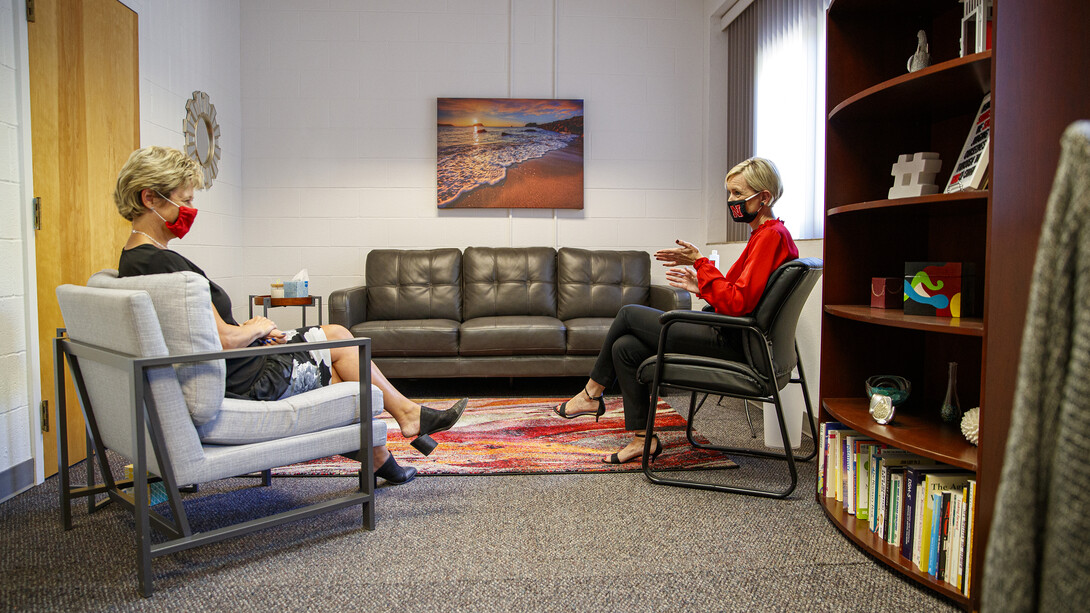
In the past seven months, workers across the nation have been stretched thin in almost every way imaginable.
Some have become teachers for their children, leading lesson plans in between Zoom meetings. In the field of higher education, employees have put in especially long hours to ensure that universities can continue to serve students safely despite the threat of COVID-19.
That added stress has had serious consequences, with nearly a quarter of Americans experiencing symptoms of depression — almost three times the number before the pandemic began.
“As we go through each month, something difficult happens, and then something else difficult happens, and it starts accumulating and compounding,” said Kyla Gorji, director of Nebraska’s Employee Assistance Program. “Then, when we have a normal life stressor, our coping strategies seem maxed out and we struggle to handle it. Because of that, our office has seen a large uptick in faculty and staff members reaching out for help.”
According to Gorji, there are several layers of stress that have made the pandemic an especially large brute for mental health.
“The combination of shifting to remote work while homeschooling children for the first time has been difficult, if not crippling, for some people,” Gorji said. “Many feel socially deprived, and as the virus continues, we get fatigued and disappointed that things continue to be cancelled and the world isn’t back to normal yet.
“There’s also a heightened sense of anxiety about contracting the virus and potentially getting sick, financial worries, and political and racial discord that began over the summer and is increasing as we approach the presidential election in November.”
Since the start of the pandemic, Gorji said the Employee Assistance Program’s Zoom counseling option has been popular with faculty and staff. The service is free for approximately five sessions. Employees can seek out counseling for problems at work, but they can also come to address personal issues as well.
“We do satisfaction surveys regularly, and a common piece of feedback we’ve gotten is that people are relieved to have a neutral person to speak with,” Gorji said. “They just need a safe space to sit down, debrief and problem solve for an hour.”
Another popular Employee Assistance Program resource, Gorji said, has been the $750 emergency loans available to some eligible employees. The loans can be taken out for variety of reasons, such as a spouse unexpectedly losing their job or an unforeseen medical bill making finances tight.
“We’ve had a few loans approved recently. They can be a great resource for rent, utilities or mortgage help,” Gorji said. “We’ve waived most of the emergency criteria based on everything that’s going on, so it’s much easier to get one if you need one.”
Gorji added that managers can play a big role in helping employees get through this tough period.
“Listen for employee stress, pay attention to changes in their mood and remind them about EAP — then remind them again in about a month,” Gorji said. “We often think about seeking help for a period of time before we take that step to call, so that second reminder may be the extra push needed.”
She encourages any employee curious about the Employee Assistance Program’s services to get in touch, either by calling 402-472-3107 or emailing eap@unl.edu.
“It’s important to remember that you’re not alone. It’s easy to look around and think your colleagues have it all together, but we’re all struggling in one way or another — and that’s normal right now,” Gorji said. “If you feel you need someone to talk to, please reach out. No issue is too small.”







